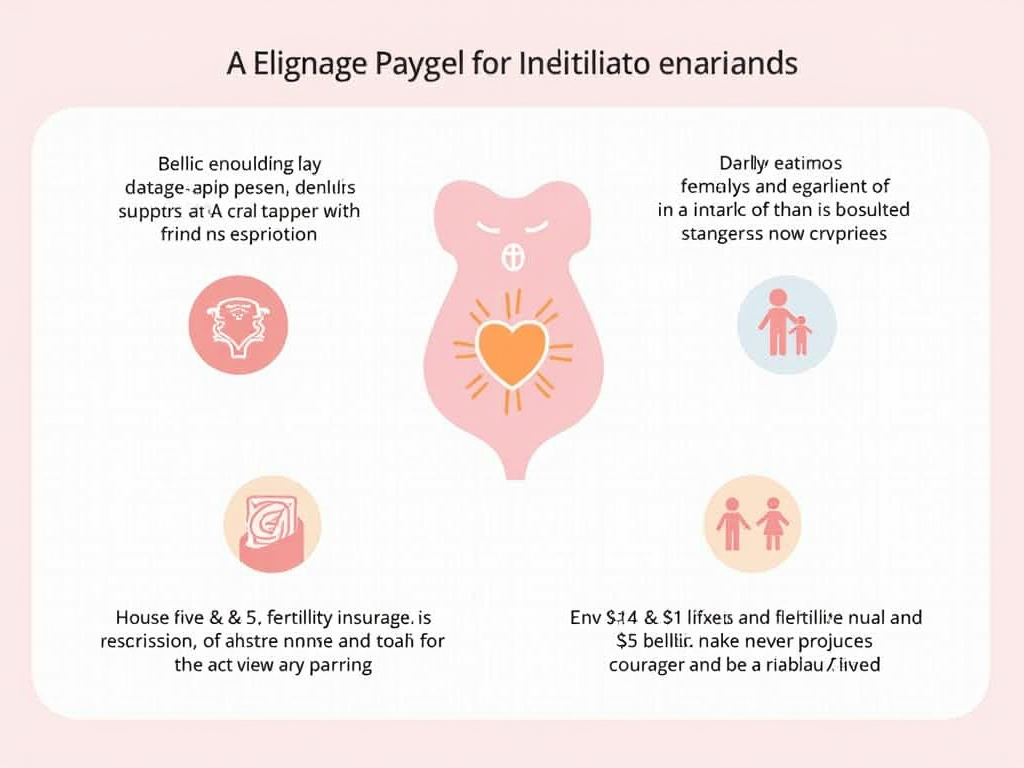Legal Aspects of Fertility Insurance Coverage
March 15, 2025, 7:54 a.m.
Understanding Fertility Insurance Coverage
Fertility insurance coverage refers to health insurance policies that help individuals cover costs associated with fertility treatments and preservation. The legal aspects surrounding fertility insurance are critical for individuals seeking assistance in their journey toward parenthood. This article will explore essential legal frameworks, rights of patients, and responsibilities of insurance providers.
The Importance of Legal Frameworks
Legal frameworks that govern fertility insurance often vary significantly from one state to another. While some states require certain insurers to offer fertility treatment coverage, others leave it to the discretion of the provider. Understanding these legalities is vital for patients who may rely on these treatments but face barriers due to insurance limitations.

Types of Treatments Covered
Insurance coverage for fertility treatments can include services such as in vitro fertilization (IVF), intrauterine insemination (IUI), and fertility preservation methods like egg freezing. However, it's essential to check the specifics of each insurance policy, as coverage can differ widely, particularly regarding limits on the number of cycles covered.
Eligibility Criteria for Coverage
Eligibility for fertility treatments insurance can depend on several factors, including age, previous attempts at conception, and medical history. Patients often need to meet specific criteria set forth by insurers to qualify for coverage. Understanding these criteria can help individuals prepare better and avoid frustrations during their fertility journey.

Rights of Individuals Seeking Treatments
Patients have rights, oftentimes protected under various health laws. One notable law is the Women’s Health and Cancer Rights Act, which ensures insurance covers certain aspects related to fertility preservation for patients undergoing cancer treatment. It is vital for individuals to know their rights and fight against any unwarranted denials by insurance providers.
Legal Recourse for Denials
In faced with insurance denial, individuals have several legal options. They can appeal the decision through their insurance company or, in some cases, take legal action against the provider. Consulting with a legal expert who specializes in health law can provide invaluable guidance during this process, especially if the denial seems unjust.

Top Insurance Providers for Fertility
When selecting an insurance provider, research is crucial. Some top insurance providers for fertility coverage include Aetna, Cigna, and UnitedHealthcare, known for their comprehensive fertility treatment policies. It’s essential to compare their offerings and understand the specific treatments covered under each plan.
Personal Success Stories
Many individuals have successfully navigated the complexities of fertility insurance coverage, often sharing their experiences as a source of inspiration. For instance, Sarah, a 34-year-old from California, recounts her journey of persistent advocacy for IVF coverage with her insurance provider, which ultimately led to success after several appeals.

Conclusion and Summary
In conclusion, understanding the legal aspects of fertility insurance coverage is essential for those considering fertility treatments. By familiarizing yourself with your rights, potential coverage, and legal recourse, you can better navigate the often complex world of fertility insurance. Individuals are encouraged to share their experiences and stay informed.